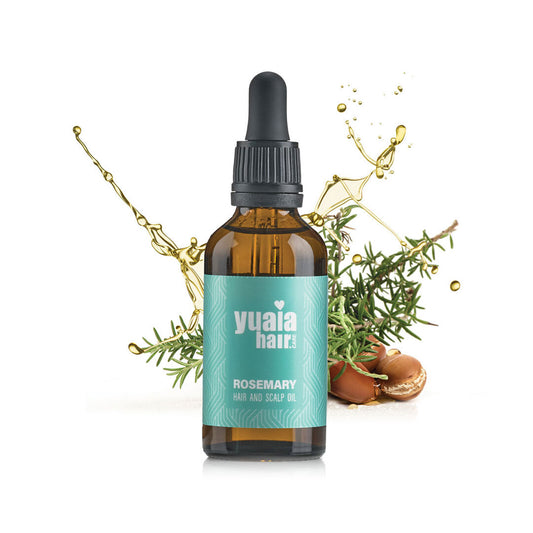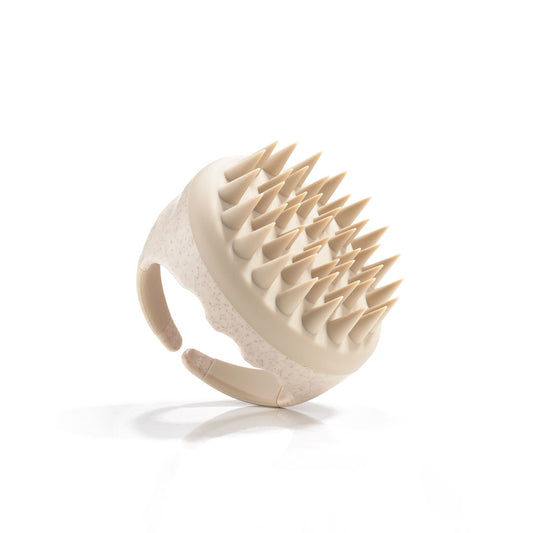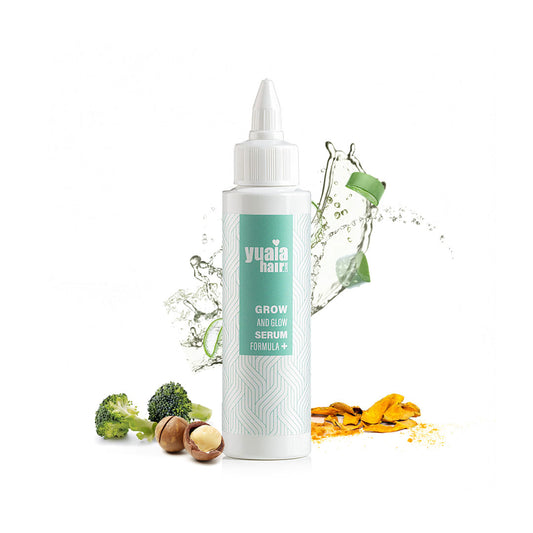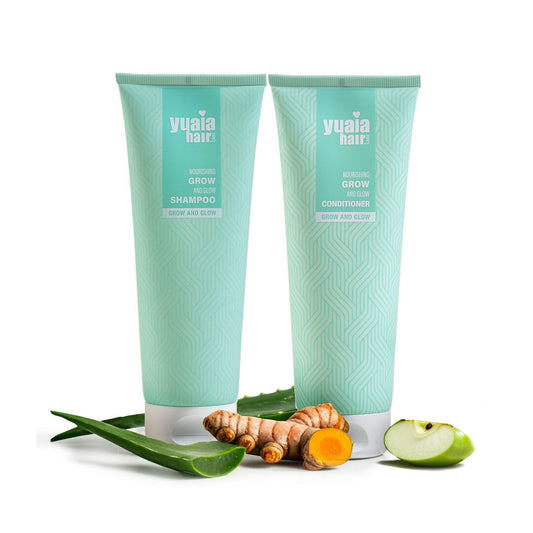
Choosing the right mask for your hair type or concern
Different hair types and concerns benefit from unique combinations of ingredients - not just oils, but also natural extracts, proteins, and moisturizing agents that work together to support growth and thickness. The key is to match your mask’s ingredients to your specific hair needs:
- Fine hair: Choose lightweight masks with ingredients like aloe vera, jojoba oil, or hydrolyzed proteins that add volume without weighing strands down.
- Thick or dry hair: Look for deeply hydrating masks with rich oils such as argan, castor, or shea butter to restore softness and improve elasticity.
- Thinning hair: Opt for masks containing circulation-boosting ingredients like rosemary, caffeine, or biotin to help stimulate the scalp and encourage fuller growth.
- Frequency: Fine or oily hair typically benefits from one treatment per week, while dry or damaged hair can handle up to two weekly sessions for optimal repair and strength.
By tailoring your mask to your specific hair needs, you can achieve stronger, shinier, and more resilient hair over time.
Effective homemade mask recipes
1. Jojoba oil + rosemary mask
This simple yet effective mask helps nourish the scalp, balance natural oils, and encourage stronger, fuller hair growth. Jojoba oil closely mimics the scalp’s natural sebum, keeping it hydrated without clogging hair follicles, while rosemary essential oil supports healthy circulation and may stimulate growth over time.
How to use it:
- Mix one tablespoon of jojoba oil with 3–5 drops of rosemary essential oil.
- Apply the mixture directly to your scalp in sections.
- Gently massage for 5–10 minutes to boost circulation.
- Leave the mask on for 30 minutes to one hour before rinsing with a gentle shampoo.
For fine hair, focus mainly on the scalp. For dry hair, you can also apply a small amount through the lengths. Use this treatment one to two times per week for best results.
2. Rich oil-blend mask for thick hair
This nourishing mask helps strengthen thick hair while adding softness and shine. Follow these simple steps for best results:
- Mix one tablespoon of castor oil with one tablespoon of argan oil in a small bowl.
- Add a few drops of hibiscus or green tea extract for extra nourishment.
- Slightly warm the mixture to improve absorption.
- Apply evenly from the scalp to the ends, ensuring all strands are coated.
- Gently massage the scalp for a few minutes to boost circulation and help the oils penetrate deeply.
- Leave the mask on for about 45 minutes to let it restore moisture and strength.
- Rinse thoroughly with a mild shampoo.
This rich blend supports stronger, healthier strands, enhances manageability, and leaves hair feeling silky and hydrated.

3. Lightweight scalp serum mask
A lightweight scalp serum mask is a great option if your hair feels fine or tends to thin out. It helps refresh the scalp, stimulate the roots, and promote stronger growth without weighing the hair down.
Step-by-step:
- Mix one tablespoon of grapeseed oil with 3–4 drops each of peppermint and rosemary oil.
- Apply the mixture mainly to the scalp.
- Massage gently to boost circulation.
- Leave it on for 20–30 minutes.
- Rinse thoroughly with lukewarm water.
This mask nourishes the scalp and encourages healthy growth while avoiding excess buildup.
Common mistakes to avoid, when using masks
Avoiding common mistakes when applying hair masks can make a big difference in maintaining thickness, strength, and shine.
One of the most frequent issues is using the wrong type of product for your hair. Heavy oils or rich masks can easily weigh down fine strands, making them appear flat or greasy.
Another mistake is focusing only on the lengths and skipping the scalp, where healthy growth actually starts. It’s also important to give the treatment enough time to work but not to overuse it - applying masks too often can lead to buildup, preventing nutrients and moisture from being absorbed properly. Always perform a patch test before trying new ingredients, especially natural extracts or essential oils, to avoid irritation. Lastly, remember that consistency matters more than intensity; using a suitable mask regularly will deliver much better long-term results than sporadic deep treatments.
Additional habits to support growth and thickness
Healthy, strong hair starts with consistent care and attention to both the scalp and daily habits. Try incorporating these simple practices into your routine to encourage healthier, thicker hair:
- Scalp massages: Perform gentle massages a few times a week to boost circulation and create a healthier environment for growth.
- Avoid tight hairstyles: Styles that pull on the roots can weaken strands and slow growth over time.
- Limit heat and chemicals: Reduce the use of hot styling tools and harsh treatments to prevent dryness and breakage.
- Prioritize rest: Quality sleep supports the body’s natural repair and growth processes.
- Choose supportive hair care: Use a shampoo and conditioner designed to improve density and strengthen each strand.
- Protect the ends: Apply lightweight oils or leave-in treatments regularly to prevent split ends, minimize breakage, and maintain a fuller appearance.
Frequently asked questions about hair masks
How soon will I see results?
Hair health improvements usually appear after consistent use for at least four to six weeks, but results can vary from person to person.
Are these masks safe for coloured hair?
Yes, homemade masks made with natural oils and plant extracts are generally safe for coloured hair. Ingredients like coconut oil, aloe vera, and argan oil can even help maintain softness and shine. However, always patch test first to ensure no ingredient fades colour or causes irritation.
What if I have an oily scalp or dandruff?
For oily scalp or dandruff, use light oils like grapeseed or jojoba and cleanse regularly. Massage the scalp before washing to boost circulation. Choose a gentle shampoo for oily or flaky scalps, and if dandruff continues, use an anti-dandruff shampoo or add tea tree oil for purification.
Nurturing long-term hair health
Homemade hair masks can be a simple yet effective addition to your hair care routine. By choosing the right oils and extracts for your hair type and applying them consistently, you can support healthier, stronger and fuller-looking hair. Remember, good hair care is about patience and regular attention rather than quick fixes.
 2-4 day UK delivery
2-4 day UK delivery
 25.000+ satisfied customers
25.000+ satisfied customers
 Satisfaction Guarantee
Satisfaction Guarantee





























